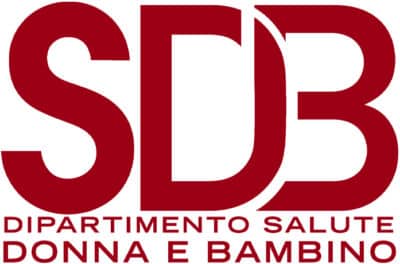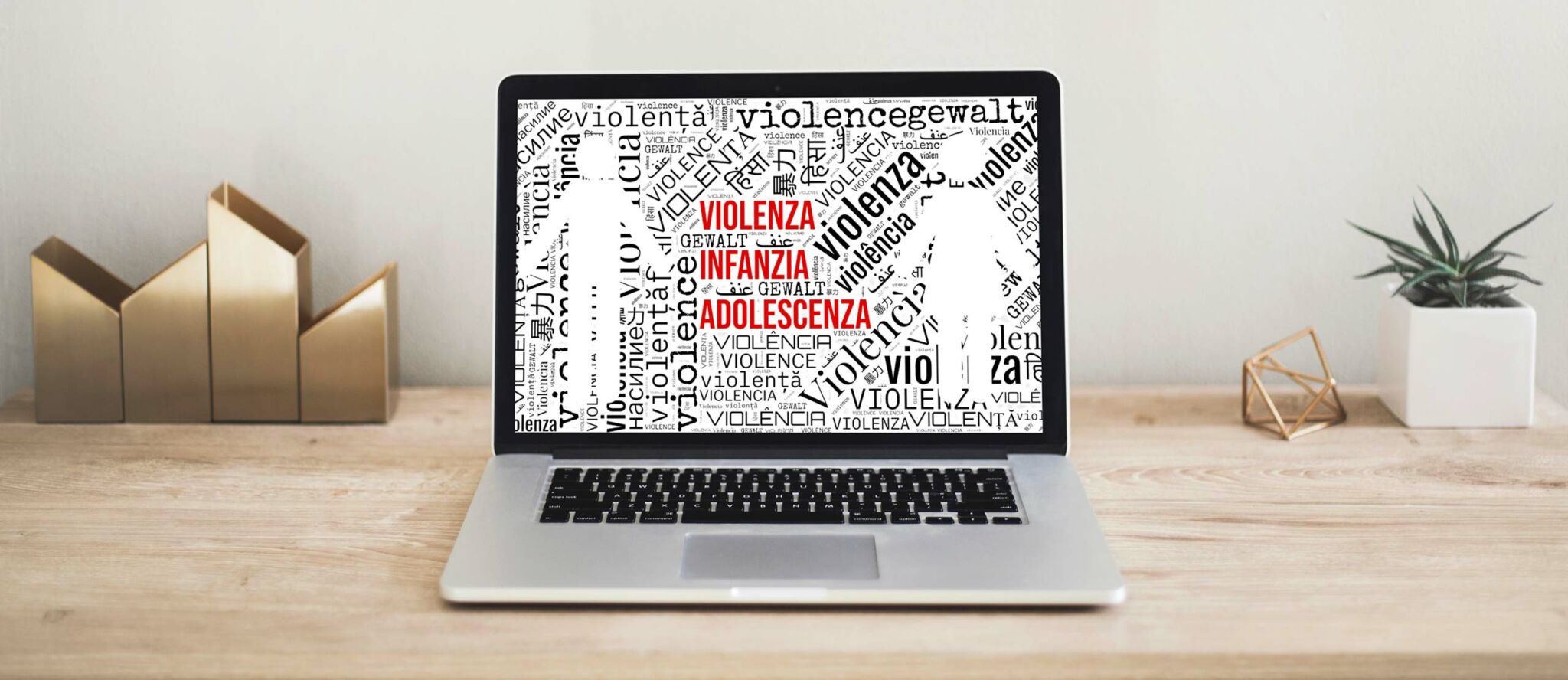
The Master in Violence During Childhood and Adolescence: Prevention, Diagnosis and Treatment, was born out of the WHO’s consideration that violence is a severe disease condition caused by external causes, and a priority of the public healthcare system, which affects millions of people every year, resulting in high mortality and morbidity. “Violence” means “the intentional use of physical strength or power, threatened or actual, against oneself, another person, a group or community, determining or likely to determine an injury, death, psychological damage, development alteration or deprivation”. “Power” includes also threads, intimidation and neglect in the violent act.
The Master provides training to all professionals figures involved in the prevention, diagnosis and staging, treatment and take-over of illnesses resulting from suffered and caused violence in children and adolescents, for a more effective and reactive Healthcare System.
The Master in Violence During Childhood and Adolescence: Prevention, Diagnosis and Treatment frames the violence phenomenon, by considering the medical, psychological and emotional aspects, and the legal aspects connected to alleged crime and enforcement. Attendees will learn how to recognize the main effects of violence on children and adolescents’ health, the different clinical patterns of abuse (physical abuse, sexual abuse, emotional abuse, neglect, abusive concussion, assisted violence, chemical abuse…), the signs and symptoms of known pathologies, the confirmation/exclusion diagnostic plan, with the use of cutting-edge biochemical and instrumental diagnostic techniques.
The course includes theoretical in-person lectures, workshops and theoretical/hands-on practice on real clinical cases, seminars and expert insights on specific topics, individual study and case revision, internships in patient wards, project work and final exam with dissertation.
At the end of the course, attendees will be able to formulate diagnostic hypotheses, exclude differential diagnoses, and plan treatment and care plans suited to the child and their families, with integrated hospital-local projects and interaction between adult, family and childhood services.
The Master in Violence During Childhood and Adolescence: Prevention, Diagnosis and Treatment trains healthcare (hospitals and local service network) and non-healthcare (legal experts and social workers) with a multi- and inter-disciplinary approach to abuse, focused on health, extending this vision to all professionals who deal with victims. The Master trains healthcare professionals – and doctors, psychologists and nurses in particular – in how to approach, diagnose and treat violence in paediatric patient, by applying the knowledge and skills acquired in hospital and local paediatric services (Paediatrician, Community Paediatrician, Family Counselling Centre, NPI) and in specialized abuse and mistreatment centres. It helps attendees to broaden their field of knowledge, even for those without a health-based training (social workers, legal experts) to acquire a new theoretical and operational standpoint concerning violence.
The Master in Violence During Childhood and Adolescence: Prevention, Diagnosis and Treatment provides knowledge on the following topics:
- Module 1 – VIOLENCE AND HEALTH: history, definitions and dimensions of this phenomenon and bias to debunk.
- Module 2 – EPIDEMIOLOGY: in the world, in Italy, in the Veneto region. Sources, specific studies and surveillance.
- Module 3 – ETIOPATHOGENESIS: determining risk factors.
- Module 4 – DIAGNOSIS: physical semeiotics, clinical pictures and differential diagnoses. Medical history, objective examination, family interaction, lab tests. Diagnostic imaging and expert advice.
- Module 5 – PHYSICAL ABUSE: signs and symptoms. Injuries: broken bones, bruises, burns, damage to bowels and organs. Diagnostic process. Differential diagnosis. The role of a paediatric PS. Teen dating violence and peer-to-peer violence. Evolution.
- Module 6 – ABUSIVE CONCUSSION (SHAKEN INFANT SYNDROME): definition, epidemiology, physiopathology, clinical phases, diagnosis and instruments. Neuroradiological framework. Retinoic framework. Neurosurgical intervention. Evolution.
- Module 7 – CHEMICAL ABUSE: main substances, administration/exposure to toxic agents, exposure during pregnancy. Toxidrome. Long-term outcomes. Forensic toxicology.
- Module 8 – NEGLECT: neurodevelopment and neuroplasticity, signs and symptoms, diagnostic process and differential diagnosis. Evolution.
- Module 9 – SEXUAL ABUSE, PHYSICAL SEMEIOTICS: genital-anal inspection in prepubescent and pubescent children, sexually transmitted diseases. Sexual abuse among peers: the diagnosis beyond the crime. Abuses: web and technology. Evolution.
- Module 10 – SEXUAL ABUSE: ACCOUNTS: trauma and memory. Qualitative characteristics of post-traumatic memories. Revelation. Interview protocol.
- Module 11 – MUNCHAUSEN SYNDROME BY PROXY/FACTITIOUS DISORDER IMPOSED ON ANOTHER/MEDICAL CHILD ABUSE: signs and symptoms, intervention and prevention. The role of the child. The role of the doctor and of any healthcare operators involved.
- Module 12 – PSYCHO-EMOTIONAL ABUSE AND ASSISTED VIOLENCE: effects on development and stress axis. Principles of psychodiagnostics assessment. Multi-problematic family contexts.
- Module 13 – ABUSING PARENT: types and risk conditions.
- Module 14 – PSYCHOLOGICAL TRAUMA: post-traumatic stress disorder. Abuse and psychopathological evolution: main clinical patterns and prognosis.
- Module 15 – TREATMENT AND PREVENTION: care plan and protection service, intervention tools and goals, role of the local service network. Professional encounter/clash in case of abuse, operators’ feelings and their role in the diagnostic process. “Non scuoterlo” (don’t shake them) prevention program.
- Module 16 – REPORTING: obligation to report and relationship with justice and protection institutions.
- Module 17 – ABUSED CHILDREN AND HOSPITALS: programmatic actions, organizational-management solutions for the diagnosis, prevention and care in hospital settings.
One of the main venues for theoretical-practical and internship activities will be the Centro Regionale per la Diagnostica del Bambino Maltrattato, Dipartimento per la Salute della Donna e del Bambino, at the Padua University Hospital. The Centro, opened in 2007, can count on a dedicated facility and team, with 3 abuse-specific ordinary inpatient beds and 1 day-hospital bed, plus clinic and consultancy activities on site and remotely, for regional and out-of-region hospital networks. It carries out diagnosis activities on alleged abuses and victim take-over: pathology diagnosis (form of abuse), including the study of rare or very rare diseases in differential diagnosis; urgent-emergency, semi-intensive, ordinary and rehabilitation treatment, in the acute and subacute phases; damage profile diagnosis by gathering objective morphological, metabolic and functional elements concerning current and evolutionary damage; patient and family resource diagnosis.
Diagnostic-treatment plans may be carried out through admission or clinical/consultancy activities. The Centro carries out diagnostic activities to aid the Criminal Police and consultancy activities for Judicial Authorities.
The Master will be held at the wards and diagnostic services of the Padua University Hospital (AOUP), an outstanding regional Hub hospital and a reference healthcare unit, with an institutional partnership between the Regional Healthcare Service and UNIPD. It integrates support, educational and research activities, contributing to reach the Regional Healthcare Service support objectives, and promoting the achievement of the University of Padua and the Scuola di Medicina and Chirurgia’s educational and research attainments. AOUP ensures all assistance activities, in a process that blends educational and research activities. AOUP is part of a European network and partner of international institutions, which give it a global dimension and recognition.
It is the 8th hospital in Italy in the World’s Best Hospital – Newsweek’s annual classification of the best hospitals in the world – and the 128th hospital out of 2,400 hospitals in 30 countries worldwide (2025).
All the Faculty members work at the AOUP.
Director: Stefano SARTORY, Professor of Paediatrics, UOC Paediatrics Clinic, AOUP
Vice Director: Dr. Melissa ROSA-RIZZOTTO, Manager of the Centro per la Diagnostica del Bambino Maltrattato, AOUP
- AL-BUNNI, UOC Neuroradiology, AOUP
- AMIGONI, Dir. UOSD Paediatric Intensive Care Unit, AOUP
- ANGLANI, UOC Neuroradiology, AOUP
- APRILE, Professor of Forensic Medicine, Dir. UOC Forensic Medicine, AOUP
- BARALDI, Professor of Paediatrics, Dir. UOC Neonatal Pathology, AOUP
- BARO, UOC Paediatric Neurosurgery, AOUP
- BELLONI FORTINA, Professor of Dermatology, UOC Paediatric Clinic, AOUP
- BRESSAN, Professor of Paediatrics, Dir. UOC Paediatric ER, AOUP
- BUA, Centro per la Diagnostica del Bambino Maltrattato, AOUP
- CANANZI, Professor of Paediatrics, UOC Paediatric Clinic, AOUP
- CAUSIN, Dir. UOC Neuroradiology, AOUP
- CECCHIN, Professor of Nuclear Medicine, Dir. UOC Nuclear Medicine, AOUP
- CUTRONE, UOC ENT, AOUP
- D’ERRICO, UOC Neuroradiology, AOUP
- GATTA, Professor of Paediatrics, Dir. UOC Paediatrics, AOUP
- MASIERO, UOC Paediatric ER, AOUP
- PARROZZANI, Professor of Ophthalmology, UOC Eye Clinic, AOUP
- PERILONGO, Professor of Paediatrics, Dir. Dipartimento Salute Donna e Bambino
- RANZATO, Centro per la Diagnostica del Bambino Maltrattato, AOUP
- SARI, UOC ENT, AOUP
- TESSARIN, Medical Director, AOUP
- ZUCCHETTA, UOC Nuclear Medicine, AOUP
- VIEL, Professor of Forensic Medicine, UOC Forensic Medicine and Toxicology, AOUP
The general ranking of merit for the academic year 2025/26 will be published on the Italian page of this Master according to the timing provided in the Call.
Information
FAQ
Yes, attendance of at least 75% of the course is mandatory.
The Master includes in-person lectures only.
Lectures will be held for 5 consecutive days (Monday to Friday, from 9 am to 7:30 pm, 9 H) every two months, while individual training activities will be scheduled along with the project work.
2-3 person groups will be created, mentored by the staff of the Centro Regionale per la Diagnostica del Bambino Maltrattato to perform: medical history collection, general examination, diagnostic work-up with instrumental and non-instrumental exams, interviews with the parents, case assessment and discussion in teams, UVMD meetings, communications with the DA’s.
If you are a Social Worker or a legal professional, a Master on Violence against minors with this medical-biological approach may provide you with advanced and specialist training on the short- and long-term effects abuses have on children and adolescents’ health, especially on the brain’s growth and development, and with the tools to tackle and read complex situation with greater competence and safety.
Knowing what to do and when, why certain clinical examinations and assessment should be carried out, and the consequences of abuse may help you set out the right project plans and ensure more targeted reactions, based on the clinical-instrumental framework and staging, with identification of the “disease burden”. Moreover, given the added-value of the direct experience on actual cases, the Master lays the foundations for the attendees’ preparation, awareness and ability to make delicate decisions with the right balance between technical competence, ethical rigour and empathy.

